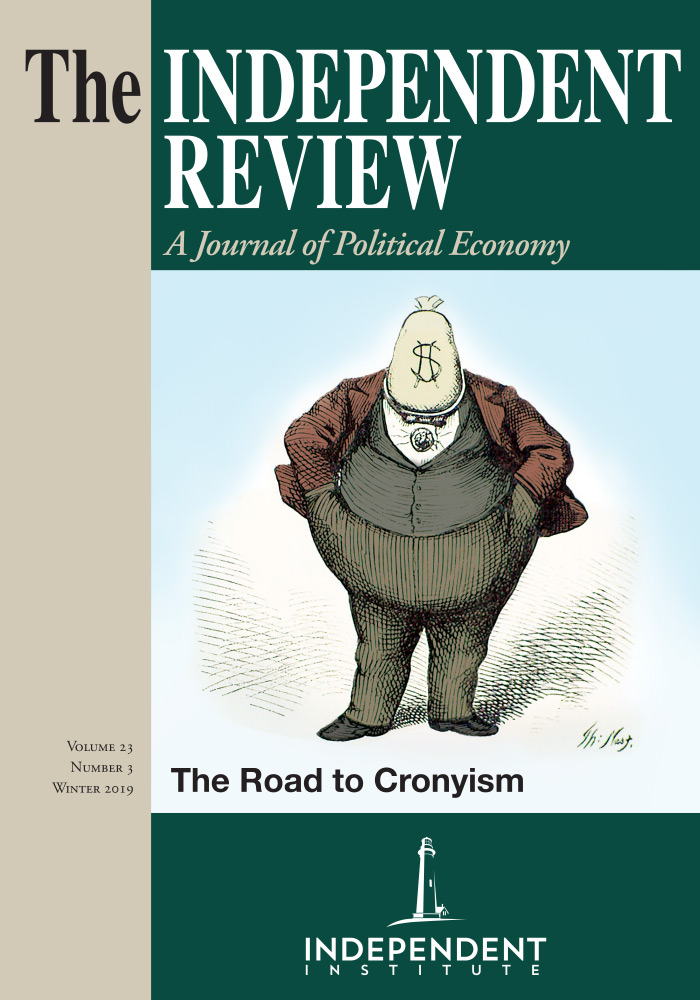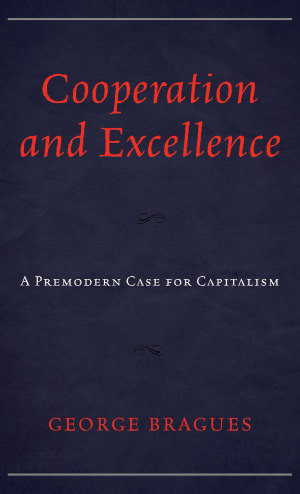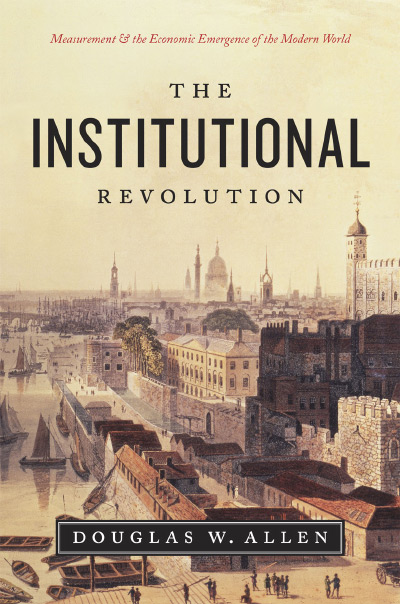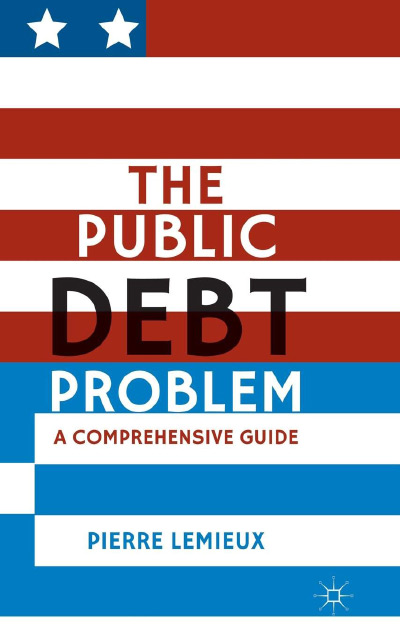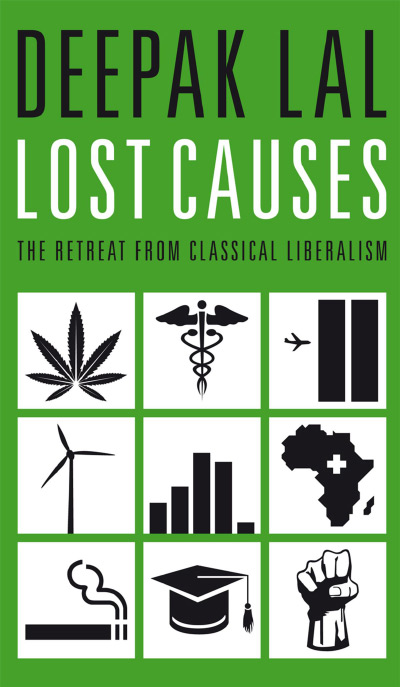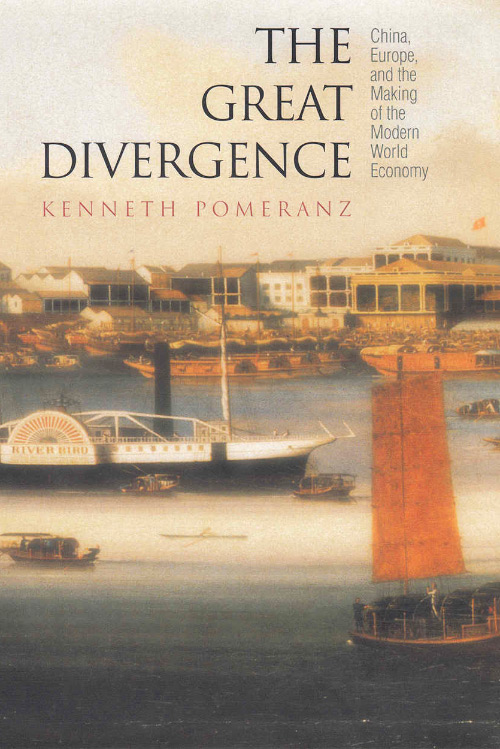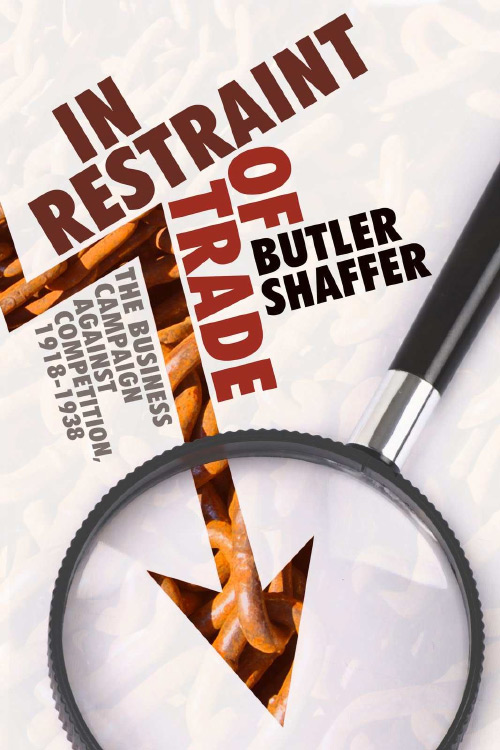Capitalism is a surprisingly recent invention. If we set the beginning of capitalism at the publication of Adam Smith’s book The Wealth of Nations in 1776, it is only 242 years old. That is only somewhere between nine and twelve generations ago. In contrast, Julius Caesar was assassinated in 44 B.C., more than 2,000 years ago. The difference in time between Caesar’s assassination and the founding of capitalism is an order of magnitude.
Because of this distance in time, the ancients are different from us in many respects. Their views of morality, politics, religion, and even the family differ from ours in fundamental ways. For instance, all of their great moral and political thinkers advocated, or at least tolerated, slavery. In most of the ancient Greek city-states, pederasty was institutionalized, and women were treated horribly. Their scientific conception of the world is different in most ways from our own, and their religions were polytheistic. The list goes on.
There is a temptation to see the Romans in the way that Goethe claimed Shakespeare represented them—as Englishmen in togas. We should avoid this temptation while also avoiding the opposite error of thinking that the ancients are so different that there is nothing to learn from them. Wittgenstein, for instance, bragged that he had never read Aristotle (or presumably any Greek philosophy). The idea, held by many, is that because the ancients were “wrong” about virtually everything, there is no sense in studying them today.
Reading and learning about radically different views from our own, though, can be intellectually beneficial. Understanding different viewpoints can help us see the world in new and different ways. Nietzsche’s study of classical drama and philosophy, for instance, led him to his radical “reevaluation of all values” and rejection of contemporary morality and philosophy. The American Founders were also crucially influenced by Roman republican thought.
Into this debate about the importance or irrelevance of ancients to modern problems comes George Bragues and his “premodern” case for capitalism. The idea of a premodern defense of capitalism initially seems hopeless. Capitalism is a modern invention, so it seems as if a premodern defense of capitalism would be about as plausible and useful as a premodern defense of the Internet. This conclusion is too quick, however. Bragues’s project is not to explain historically what the ancients thought about capitalism. His goal is instead to deploy the insights of one ancient thinker, Marcus Tullius Cicero, to provide a novel and, he argues, uniquely powerful defense of capitalism.
The book is largely successful in this task. Applying Cicero’s thought to modern problems leads to real insights—Bragues does provide a truly novel defense of capitalism. Other thinkers, of course, have used ancient philosophy to defend capitalismand liberalism. Ayn Rand, for instance, was famously fond of Aristotle, and Douglas Rasmussen and Douglas Den Uyl have more recently developed an intricate defense of liberalism and capitalism based on Aristotelian ethics (Norms of Liberty: A Perfectionist Basis for Non-perfectionist Politics [University Park: Pennsylvania State University Press, 2005]). Virtually all attempts to use classical thought to defend modern political or economic systems, however, rely on Aristotle. Even Murray Rothbard and many of his libertarian followers were heavily influenced by Scholastic thought, which, in turn, relies heavily on Aristotle. I have bucked this trend somewhat in my own work by arguing that Epicurean thought has much to offer the contemporary political theorist (“Reconciling Justice and Pleasure in Epicurean Contractarianism,” Ethical Theory and Moral Practice 16, no. 2 [2013]: 423–36), but most attempts to use the ancients for modern goals rely on the man the Scholastics called “The Philosopher.”
One of the most valuable aspects of Bragues’s book is that it shows the value and importance of Cicero’s thought in general and for political and social thought in particular. Cicero is often dismissed as either a skeptic with nothing positive to say or as a Stoic apologist. In any case, he is not generally considered to be a thinker of the first rank.
Bragues argues that this view is mistaken. Cicero was a skeptic, but he was an Academic rather than Pyrrhonian skeptic. The difference is that whereas the Pyrrhonian skeptic argues that because it is impossible to establish any particular truth with certainty, we should withhold judgment on the matter and pursue contemplation for its own sake, the Academic skeptic argues that our lack of certainty on important matters should lead us to be humble but nevertheless to make probability assessments of various views and decide on the basis of where the preponderance of evidence lies. The Academic skeptic embraces the active life of politics and commerce, even in the face of considerable uncertainty. Academic skepticism of the sort that Cicero defends, combined with other claims about natural law, a providential god, and a conception of the good life as the pursuit of human excellence, lead to a powerful defense of capitalist society.
To bolster his claim, Bragues surveys various other justifications of capitalism, including self-ownership views, utilitarianism, and social contract theories. All are found wanting. He argues that we should instead adopt a largely Ciceronian conception of justice. The explication of Cicero’s theory of justice in chapter 3 alone is worth the price of admission. It is a topic that has largely been ignored by political theorists, and Bragues does us all a favor by digging through the Ciceronian corpus and setting out a coherent theory of justice. His overview is excellent, and my only complaint is that I wanted more. Although I suspect the Ciceronian theory of justice is not his main research interest, I would welcome a book-length scholarly treatment of it that goes into more detail than is possible in one chapter.
Yet, despite all the machinery of Academic skepticism, natural law, probabilistic reasoning, a providential god, and focus on the importance of human excellence, Bragues ends up defending a regime very similar to the one the Founding Fathers of the United States devised: a mixed regime that does not suppress religion and is founded on a respect for both property and virtue. The Founders were keen readers of Cicero as well as of Polybius, so it is, perhaps, no surprise that there should be so much overlap between their design and these thinkers’ advice.
The Founders were also, however, well versed in Scottish Enlightenment thinking and classical political economy, and one thing that I left this book wondering about is exactly what the premodern defense of capitalism buys us that we can’t get from a roughly Smithian or Humean defense. Hume and Smith share many of the Ciceronian features that Bragues finds appealing. In epistemology, they share the skeptical, probabilistic approach that Bragues claims is characteristic of Cicero. Similarly, they defend conceptions of justice with an emphasis on property and argue in favor of mixed regimes. They give a secular defense of these principles, but Smith provides a secular version of Providence in the idea of the invisible hand. Both also defend certain forms of excellence in the context of commercial society.
By comparing Bragues’s view with the defense of commercial society that we find in Smith and Hume, we see the real distinctiveness of the Ciceronian defense of capitalism. I do not think I am being uncharitable if I describe the Ciceronian approach as having a politically esoteric element. It is not so much that this vision of society requires that there be a god, natural law, or real differences in terms of human excellence. Rather, what is important is that the society believes that justice is a natural virtue that is intrinsically valuable and that this belief is backed up by faith in a providential deity. It also need not be true that the rulers really are more excellent or virtuous so long as they appear to be.
This feature of Bragues’s view has two major flaws as a defense of capitalism. The first is that it seems to rely on deception in the form of various “noble lies” about the nature of justice, god, society, and so on. Many philosophers, most notably Plato but also many utilitarians, have defended views that require the true basis of the social order to be hidden or deceptive, but this requirement is an unappealing feature of a society of free men and women who see each other as moral equals. A capitalist system does not, in principle, need to treat its citizens as moral equals, but a liberal one surely does. The second problem is that a society that requires such specific views about Providence, natural law, and so on is likely to be unstable in the face of public disagreement about those values. This is just another way of saying that even if Bragues has shown that his premodern defense of capitalism is possible and perhaps even necessary, he hasn’t shown that it is likely to be stable.
This creates a dilemma. Either the Ciceronian defense of capitalism is the only plausible defense of capitalism (as Bragues sometimes seems to suggest), or it is only one of many plausible defenses of capitalism. The first horn, combined with the likelihood that such a system would be unstable in the face of reasonable disagreement about the principle pillars of such a system, leads to the conclusion that capitalism is inherently unstable. The second horn leads to the conclusion that Bragues has provided only one but not the only plausible defense of capitalism.
There is nothing inherently wrong with accepting the second horn of the dilemma. Bragues seems to be making the stronger claim in chapter 1, where he argues that his Ciceronian defense of capitalism is uniquely situated to provide the basis of a commercial society, but he doesn’t actually need to make this claim. Indeed, that kind of claim is very un-Ciceronian. Remember, Cicero was a skeptic who dealt in probabilities, not in certainty. Bragues, on the last page of the book, seems to agree.
Ultimately, this book is a valuable and novel contribution. Bragues’s theory is different from both most modern and Aristotelian-inspired defenses of capitalism. In writing this book, he has done us a service by detailing the Ciceronian theory of justice and in showing how it can cohere, perhaps unexpectedly, with capitalism. He also shows that we still have much to learn from the ancients, especially from Cicero.
| Other Independent Review articles by John J. Thrasher IV | |
| Summer 2024 | Liberal Freedom: Pluralism, Polarization, and Politics |
| Summer 2021 | Putting Populism in Its Place |

